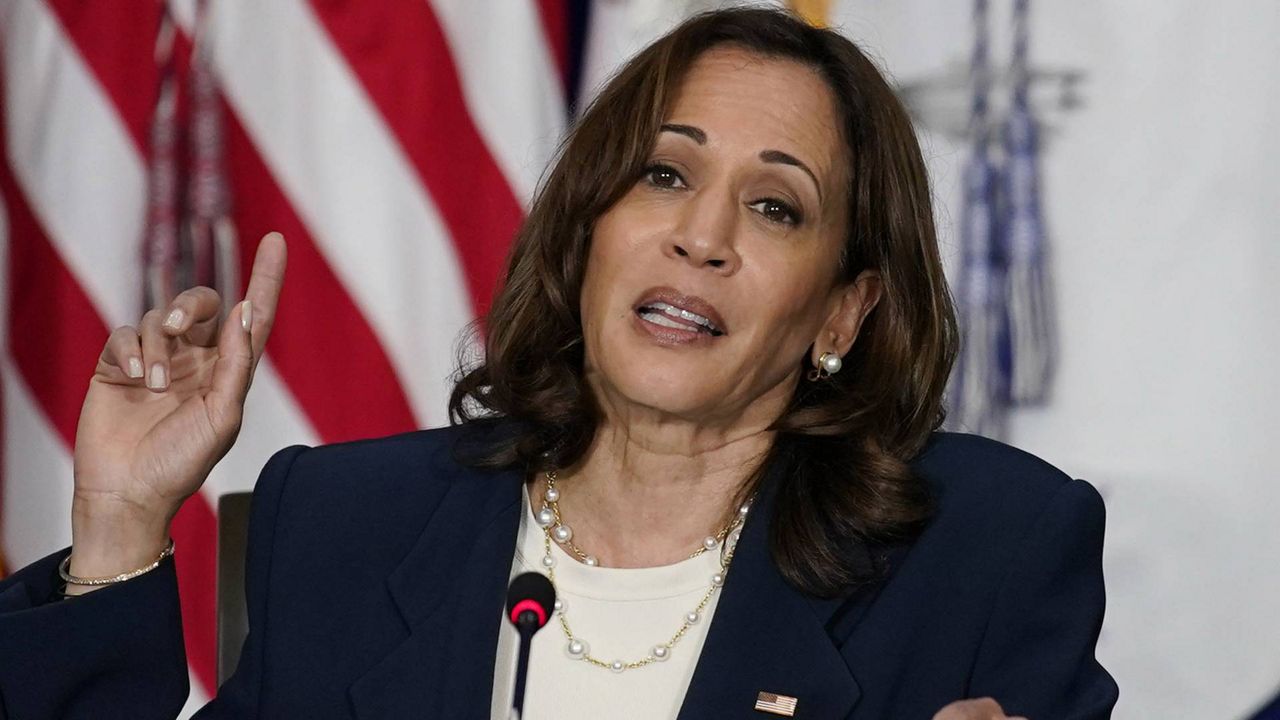Vice President Kamala Harris on Friday announced new investments from private space companies to boost STEM education and the space workforce, as she chaired her second National Space Council meeting since taking office.
Speaking at the Johnson Space Center in Houston, Harris highlighted more than a dozen commercial space companies, including Blue Origin, Boeing, Lockheed Martin and Northrop Grumman, that have committed to helping fund space careers and recruitment.
That includes three regional pilot training programs in Florida, Southern California and the Louisiana/Mississippi gulf coast, which will launch next month.
“This coalition of companies will partner with our community colleges, with our technical schools and our unions to help workers learn the skills they need to take on the new jobs that are being created in the space industry,” Harris said before chairing the space council meeting.
The Biden administration will also boost space jobs: The Labor Department will host an apprenticeship accelerator focused on the space sector’s skilled technical workforce by 2023, and the Department of Defense will also launch a space careers website in October.
The DOD is also expanding its university partnership program with the U.S. Space Force, boosting the value of scholarships for high school students to cover full tuition.
Harris spoke about three core goals of the space council over the coming years: boost the space workforce, combat the climate crisis by using space technology and establish international norms outside earth’s atmosphere.
“The mission of this council is to preserve and promote American leadership in space — to synchronize our nation's civil and commercial and national security space activities — so that America may continue to use space to improve the lives of people in our nation and throughout our world,” Harris said Friday.
The vice president also spoke with three astronauts Friday morning who are aboard the International Space Station, which the U.S. has committed to continuing its funding through 2030. She called herself "an American who is a space nerd."
Harris said another major goal of the council’s work was boosting human space exploration, including through NASA’s Artemis program, which seeks to send humans back to the moon for the first time in fifty years, plus establish a long-term presence on the moon.
“We have traveled billions of miles into the unknown. And we have learned many great and profound truths about our universe,” she said. “And yet, in a very real sense, we have only just begun our journey into space. There's so much we still don't know and so much we still haven't done. Space remains a place of undiscovered and unrealized opportunity.”
The U.S. has led cooperation on the Artemis Accords, which is a document to set forth international norms in space. So far, 21 countries have signed on, and U.S. officials will push for more cooperation at the U.N. General Assembly later this month.
And space will help shape the world’s response to climate change, NASA Administrator Bill Nelson affirmed, announcing a new tool called the Earth Information Center, which will give a “3D, precise understanding” of the planet’s water, land, ice and atmosphere.
“I would add one more quote from [President John F.] Kennedy’s speech 60 years ago. He said we'd go to the moon and do other things, not because it's easy, but because it's hard,” Nelson said.



